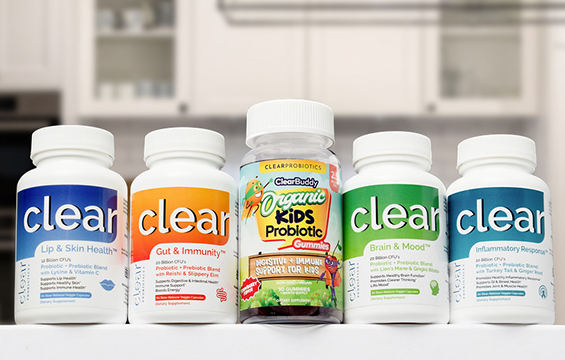Table of Contents
ToggleProbiotic supplements play a crucial role in supporting gut health, but how long do they actually last?
Understanding the shelf life and expiration dates of probiotics is essential for maximizing their effectiveness.
In this article, we will delve into the factors that affect the lifespan of probiotics and provide guidelines for using them effectively.
Key Takeaways:
- Probiotic supplements have an expiration date and their shelf life depends on the bacterial strain, encapsulation method, and storage conditions.
- Most probiotics have a shelf life of about a year, but some may expire sooner or later.
- It is recommended to use probiotics before their expiration date as their effectiveness declines over time.
- Consuming expired probiotics won’t harm you, but their efficacy may be reduced.
- Proper storage, such as refrigeration, can help extend the shelf life of probiotics.

Understanding Probiotic Shelf Life
The shelf life of probiotic supplements is influenced by various factors, and understanding them is key to maximizing their effectiveness.
Probiotics are live bacteria that provide health benefits when consumed, but their viability can decrease over time.
To ensure you’re getting the most out of your probiotics, it’s important to know how to maintain their potency, extend their lifespan, and preserve the beneficial bacteria they contain.
One of the primary factors that affect the shelf life of probiotics is the bacterial strain.
Different strains have different characteristics and may have varying levels of stability.
The encapsulation method used to protect the bacteria can impact their longevity.
For example, probiotics that are encapsulated in enteric-coated capsules are often more resistant to stomach acid and have a longer shelf life.
Storage conditions also play a crucial role in preserving probiotic bacteria.
When selecting probiotic products, it’s important to look for those that undergo lab testing for potency and have accurate labeling.
It’s also worth noting that consuming expired probiotics won’t harm you, but their efficacy may be reduced.
While expired probiotics may still contain viable microbial cells, the total counts are typically below the level required for maximum effectiveness.
| Factors Affecting Probiotic Shelf Life |
|---|
| Bacterial strain |
| Encapsulation method |
| Storage conditions |
| Lab testing and accurate labeling |
By understanding the factors that influence the shelf life of probiotics and implementing proper storage practices, you can ensure that the supplements you take are as effective as possible.
Taking these steps will help you reap the maximum benefits of probiotic supplementation and support your overall well-being.

Refrigeration is Key
It is recommended to store probiotics in the refrigerator, as cooler temperatures help preserve the viability of the beneficial bacteria.
As a general rule, probiotics should be kept at a temperature between 36-46°F (2-8°C).
This helps slow down the natural breakdown of the live microbial cells, keeping them active and effective for a longer period.
Fluctuations in temperature can compromise the potency of probiotics.
Therefore, always avoid storing them near heat sources, such as stoves or direct sunlight, as this can accelerate the deterioration process.
Protect from Moisture and Light
Moisture can create a breeding ground for unwanted moisture-loving microorganisms that can potentially degrade the probiotics.
To avoid this, store your probiotics in their original airtight containers, ensuring they are well-sealed to prevent moisture infiltration.
Light exposure can also harm probiotics, as UV rays can damage the delicate live cells.
Hence, it is best to store probiotics in opaque, light-resistant containers.
If your probiotics do not come in such packaging, consider transferring them into a dark, airtight container and storing them in a cool, dry place.
| Storage Recommendations for Probiotic Supplements: |
|---|
| Refrigerate probiotics between 36-46°F (2-8°C) |
| Avoid exposure to extreme temperatures |
| Store in original airtight containers to protect from moisture |
| Transfer to light-resistant containers or store in a dark place |

A Word from HealthyVibe
Following proper storage practices for probiotic supplements is an essential step in ensuring their efficacy.
To maximize the lifespan and potential benefits of your probiotics, refrigerate them at the correct temperature, protect them from moisture and light, and choose high-quality products with accurate labels.
Remember, while expired probiotics may still contain viable microbial cells, their overall effectiveness is likely to be reduced.
So, be diligent about monitoring expiration dates and regularly replenish your supply to maintain optimal health support.
FAQ
Q: What is the shelf life of probiotic supplements?
A: Probiotic supplements typically have a shelf life of about a year, but it may vary depending on the bacterial strain, encapsulation method, and storage conditions.
Q: Can I use probiotics after their expiration date?
A: While it is recommended to use probiotics before their expiration date, consuming expired probiotics won’t harm you. However, their effectiveness may decline over time.
Q: How can I extend the shelf life of probiotics?
A: Proper storage, such as refrigeration, can help extend the shelf life of probiotics and preserve their potency and effectiveness.
Q: What should I look for in probiotic products?
A: It is important to choose probiotic products that are lab tested for potency and have accurate labeling. This ensures reliable product quality and effectiveness.
Q: Do expired probiotics still contain viable microbial cells?
A: Expired probiotics may still contain viable microbial cells, but the total counts are usually below the level required for efficacy. Their effectiveness may be reduced.









